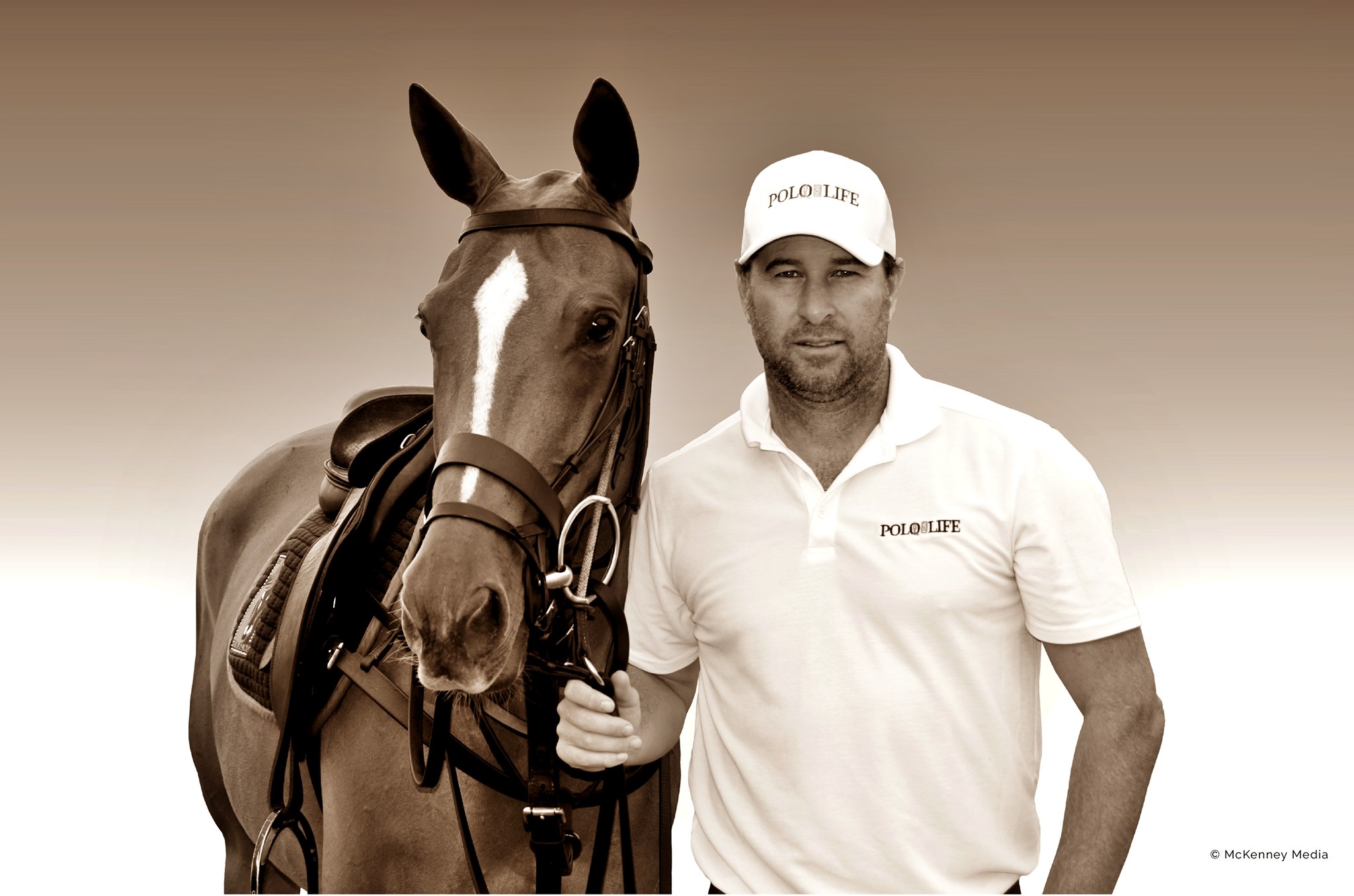Brandon Phillips: An Inspiration On and Off the Polo Field

A teenage boy rests his head on a pillow one night after a usual rugged day of sports and play, waking the next morning to find his left leg swollen and in pain. A day later he would receive a life-changing diagnosis of non-Hodgkin’s lymphoma.
That boy was Brandon Phillips. Stricken with cancer at the age of 14, he endured months of treatment and almost two dozen spinal taps before he went into remission and was finally cured. You can take such a challenge and use it as an escape route or a launch pad. Phillips chose the latter and hasn’t looked back since.
Born in Kings City, Canada into a family with an equestrian bloodline, Phillips seemed destined to be on horseback. Both his father and brother were amateur polo players, his mother and sister fox hunters, and two uncles were Olympic show jumpers. After his cancer recovery at 15 he was able to dive back into sports, and since he was extremely athletic he played many — including ice hockey, soccer, rugby, basketball and polo.
“Since I could walk I was skating and wanted to be a professional hockey player, but when I was asked to start playing polo professionally at 17 years old, I couldn’t say no!” Phillips remarked. “So naturally I enjoy the competitiveness and physicality of the sport, and to be one of the very few Canadians that have made a solid career in the sport is an honor.”
His polo victories include the U.S.PA Silver Cup, The Gold Cup of Americas, CV Whitney Cup, East Coast Open and Pacific Coast Open — and the list goes on. He also played in the U.S. Open with White Birch and some of the world’s best players. Phillips is not only one of the finest players in the sport — he’s become a celebrity of sorts in the polo circuit due to his charm, integrity and down-to-earth demeanor. Phillips is still in the saddle today — riding, competing and practicing.
“Yes, still very much playing,” said Phillips. “Haven’t stopped. This is my 29th professional season here in Wellington. Due to some back injuries over the years I need to stay on a pretty strict training schedule. During the season I have a trainer who I train with twice a week.”
His daily routine starts with family first, ensuring his wife and kids are taken care of. On training days he trains at 7:30 a.m. then goes directly to the barn by 8:45 a.m. Depending on the day he’ll ride or practice that morning, with the rest of the day filled with planning team practice, scheduling games and preparing himself and the team for the next game.
“On the days I don’t train early, I take my son to school then go to the barn. I not only manage my own horses but my team’s as well. I make sure all horses are well and kept on schedule, as well as all the grooms and trainers we have. So along with playing, managing is also a big part of my day.”
Dubbed the sport of kings, polo has been unsuccessful at taking a spot in the mainstream limelight. Not only because of the price tag associated with playing — but the popular misconception that this a high society game for bonnet-wearing champagne sippers. Let it be known — polo is not for the faint of heart. To call polo a game is also a stretch. It’s a sport that requires massive agility, finesse and strength. And it’s really exciting to watch.
“Polo needs more airtime on TV,” Phillips commented. “ESPN does a great job in Argentina, but here in North America we barely ever get exposure. They show more corn hole on ESPN than polo! Maybe even showing polo more as an extreme sport may bring more eyes on it.”
Given a second chance at life at a young age, Phillips was compelled to help others enduring similar hardships. He co-founded Polo for Life several years back, a nonprofit organization dedicated to raising money for pediatric cancer patients and their families. As the founder and president he is involved in every aspect of the organization.
“Not only is it my passion, it’s my reputation if the organization isn’t run properly or performing to the highest possible standards,” said Phillips. “I know what the patients and their families go through. So anything we can do to make a horrible process easier is what I want to do.”
Phillips enjoys spending any spare time with his family, teaching his son to ride or skate, soaking in some pool time or just about anything he can do with them.
When does Phillips plan on packing it in?
“As long as my family needs food on the table I don’t plan on throwing in the towel,” Phillips admitted. “I do whatever it takes to physically and mentally fit to stay in the game. My family needs me, so I won’t stop. Waking up in pain each morning just lets me know I’m not dead. If I had an easy job everyone would do it.”



